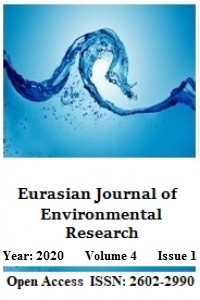AN INTERLABORATORY COMPARISON TEST FOR ELECTROCHEMICAL ANALYTICAL METHODS IN REAL WASTEWATER SAMPLE: Z-SCORE MODEL AND PARTICIPANTS EFFECT
Abstract
The study was conducted to evaluate the z-scores of accredited and non-accredited laboratories for the electrochemical analysis namely pH, conductivity and salinity through an interlaboratory comparison test carried out on real wastewater samples. The participants were small scale 16 non-accredited and 9 accredited wastewater analysis laboratories in Turkey. The samples from a wastewater treatment plant were first collected from influent and effluent lines. The third sample was prepared by mixing the influent and effluent water samples to obtain three different levels of analysis as high, low and medium, respectively. pH, conductivity or salinity are the measurements based on electrochemical analytical methods in which the influence of the other factors such as technical staff ability on the measurement is limited. However, the method used in the z-score calculation could have a substantial effect on the z-score performance of a laboratory. Therefore, three different z-score calculation approaches using standard deviation (SD) for proficiency assessment and different assigned values were applied to the interlaboratory comparison test results. The assigned value was determined through average, and median of individual groups named as accredited or non-accredited laboratories. The results indicated that the method used in the z-score calculation does not substantially affect the scores of the laboratory. No population quality effect on the z-score exists. The laboratory with low performance will not pass the comparison test whatever the z-score calculation method.
References
- TS ISO 13528: 2015 Statistical methods for use in proficiency testing by interlaboratory comparisons, International Organization for Standard.
- TS EN ISO / IEC 17043 Conformity assessment – General requirements for proficiency testing, International Organization for Standard.
Abstract
References
- TS ISO 13528: 2015 Statistical methods for use in proficiency testing by interlaboratory comparisons, International Organization for Standard.
- TS EN ISO / IEC 17043 Conformity assessment – General requirements for proficiency testing, International Organization for Standard.
Details
| Primary Language | English |
|---|---|
| Subjects | Environmental Engineering |
| Journal Section | Articles |
| Authors | |
| Publication Date | May 1, 2020 |
| Submission Date | January 31, 2020 |
| Published in Issue | Year 2020 Volume: 4 Issue: 1 |
Cite
Creative Commons License
Attribution-NonCommercial-ShareAlike 4.0 International (CC BY-NC-SA 4.0)

Creative Commons Attribution-NonCommercial-ShareAlike (CC BY-NC-SA) License lets others remix, tweak, and build upon the work non-commercially, as long as they credit the author(s) and license their new creations under the identical terms.

